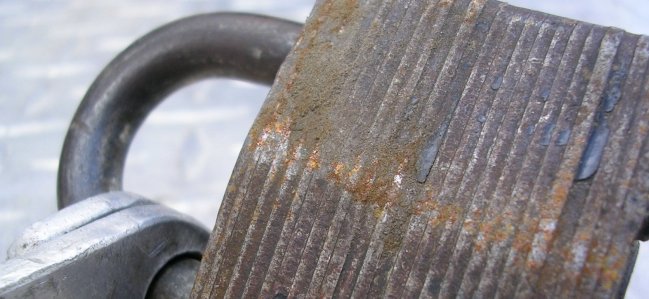What Does Hotfile’s Closure Mean to You?
 Yesterday, it was announced the the cyberlocker service Hotfile had reached a settlement with the Motion Picture Association of America (MPAA) and would pay $80 million to the organization in damages for copyright infringement.
Yesterday, it was announced the the cyberlocker service Hotfile had reached a settlement with the Motion Picture Association of America (MPAA) and would pay $80 million to the organization in damages for copyright infringement.
The service had previously claimed that it was protected from liability due to the Digital Millennium Copyright Act (DMCA). However, the judge had previously found that Hotfile had lost its protections under the law due to the fact it lacked an adequate policy for terminating repeat infringers. This put the case on course for a trial on damages alone, which was to start Monday, but has been avoided by the settlement.
The judge in the case also ordered Hotfile that, if it wishes to remain open, it has to use “digital fingerprinting” to filter out infringing works. However, Hotfile, either unable or unwilling to comply with that request, has decided to shut down its site, effective immediately.
Hotfile’s closure is easily the biggest case of a cyberlocker being forced offline through legal action since Megaupload in January 2012. However, with nearly two years passed since Megaupload’s shuttering, the Web, especially for illegal downloads, is already a very different place.
So what impact will the closure of Hotfile have on piracy? It certainly won’t cause the shell shock that the Megaupload raids did, but it will likely cause some changes in by cyberlocker sites and the ways people use them.
Life Since Megaupload
Back in September, NetNames released a study about the size and shape of the piracy universe.
The study found that, overall, piracy was on the rise and outstripping the rise of the Internet itself. This was true across all regions and nearly all types of sites.
The exception was cyberlocker sites, which saw a large drop off between 2010 and 2013. The closure of Megaupload, and the shuttering of other sites at the same time, caused those sites to attract 8% fewer visitors, 40% fewer page views and an over 50% drop in bandwidth consumed.
Though cyberlocker sites like Hotfile had seen explosive growth before 2012, even surpassing BitTorrent sites, following the closing of Megaupload, they fell out of favor and have been very slow to recover it. After all, the raid not only brought down Megaupload, but also brought about either changes or closures for many other popular cyberlocker sites.
Perhaps even worse for cyberlockers was that the once-common affiliate program, which rewarded uploaders with cash for popular downloads, became extremely rare on cyberlocker sites, taking away a critical incentive for uploaders to use such services.
But despite this, cyberlockers remain popular places to share infringing content, especially in certain genres and for niche works that don’t routinely reach the critical mass to make BitTorrent sharing practical.
But with Hotfile shuttered. One of the last major cyberlocker sites is gone and one of the last affiliate programs is also closed. Though there is no shortage of other sites, they tend to be smaller, less-known and less-trusted.
Life After Hotfile
In that context, it’s easy to think of Hotfile as being just an example of copyright holders “cleaning up” after Megaupload. However, that ignores the fact that the lawsuit against Hotfile was first filed in 2011, well before the closure of Megaupload. While the settlement and closure may have that effect, it’s reasonably certain that wasn’t part of the MPAA’s strategy when it filed the lawsuit.
No, the impact of the Hotfile closure will be different. While it’s a major coup for the MPAA and other rightsholders, it’s not going to send the shockwaves through the industry that Megaupload did. Hotfile is not as large of a site, the case was a civil one, not a criminal one, and the industry has already suffered a huge setback.
It’s also worth noting that, as big as Hotfile was, it has never been the largest cyberlocker. It’s not the decapitation strike that Megaupload’s seizure was.
Still, the closure of such a large service is going to have an impact on the field and here are a few predictions that, most likely, are safe bets.
- Better DMCA Compliance: What ultimately did Hotfile in was its inadequate following of the rules outlined in the DMCA. It failed to terminate accounts of repeat infringers and, thus, lost the safe harbor protections it sought. I expect other sites try and avoid repeating this mistake and try to follow the law to the letter, including many not in the U.S..
- Nail in the Affiliate Coffin: The idea of cyberlockers with affiliate programs took a big hit after Megaupload but this case specifically cited Hotfile’s program as a reason to find it liable. These programs are just too risky for cyberlockers to keep up.
- Flying Under the Radar: This is a trend we’ve already seen, but there’s going to be a growing effort by cyberlockers to try and operate under the radar. This includes moving the friendlier countries, shedding features that might draw attention and trying to keep their size somewhat limited. In short, expect cyberlockers to get more varied, more foreign and more bare bones. The obvious exception being Mega, which offers encryption services, but also has a strict DMCA policy.
However, many, if not most, of these changes began well before Hotfile’s closure and actually started with Megaupload. Because of that, the greatest long-term impact of the Hotfile case will likely be the continued trend of getting away from cyberlockers for most types of unlawful content and pushing it over to BitTorrent networks and other file sharing services.
Bottom Line
While Hotfile’s closing is undoubtedly a big win for the MPAA and rightsholders everywhere, it’s not going to be the landscape-changing shift that the Megaupload closure was. While it undoubtedly is a case that other cyberlockers are watching and will pivot some on, it’s not going to cause the mass exodus or closure that Megaupload did.
If anything, it’s possible that Hotfile could prove to be a roadmap for legality for other cyberlocker services, a guide on how to avoid legal trouble. On the upside, that likely means better DMCA compliance and quicker takedowns of infringing material. On the downside, it means those that require legal action will be tougher cases.
So while this is a win for the MPAA, the road is likely to only get tougher from here for them. However, smaller copyright holders interested only in removal of infringing material may have this effort to than the next time they’re able to pull down infringing content easily and quickly.
Want to Reuse or Republish this Content?
If you want to feature this article in your site, classroom or elsewhere, just let us know! We usually grant permission within 24 hours.
